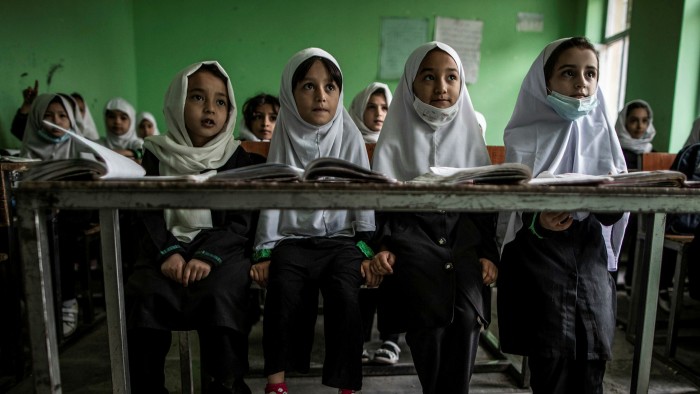FT Schools challenge: How to help girls stay in education

Roula Khalaf, Editor of the FT, selects her favourite stories in this weekly newsletter.
This article is part of the Financial Times free schools access programme. Details/registration here.
Students around the world are invited to share suggestions on how to help girls remain in school, for a writing challenge with Restless Development, a charity that supports young people become leaders.
There are many barriers stopping women and girls from getting an education, depriving them and their communities of equal access and improved opportunities. Some estimates forecast the pandemic will result in over 20mn girls not returning to school.
Young people anywhere in the world can submit ideas that may draw on their own experiences, the views of movements and organisations they have observed trying to improve education for young people, or anything else that inspires them.
Submissions should be made via the Restless Development challenge site by 7 May, with different categories for those aged 7-12, 13-15 and 16-18.
Entries will be judged based on originality, clarity and strong ideas as much as on writing style.
Winners will be announced on 25 May and the best entries have the chance to be published in the Financial Times and the WeAreRestless blog. They will also be invited to share their suggestions with political leaders in the House of Lords in September.
Applicants can find ideas in many recent articles in the FT including its section on education and investing in education report, all of which are available through the free schools access programme, as well as on the education pages of the WeAreRestless blog.
This writing challenge is part of Restless Development’s Power Up Appeal, which is raising money to help girls in Sierra Leone go to school, get their education and shape their own futures, with contributions matched by the UK Government.
Comments